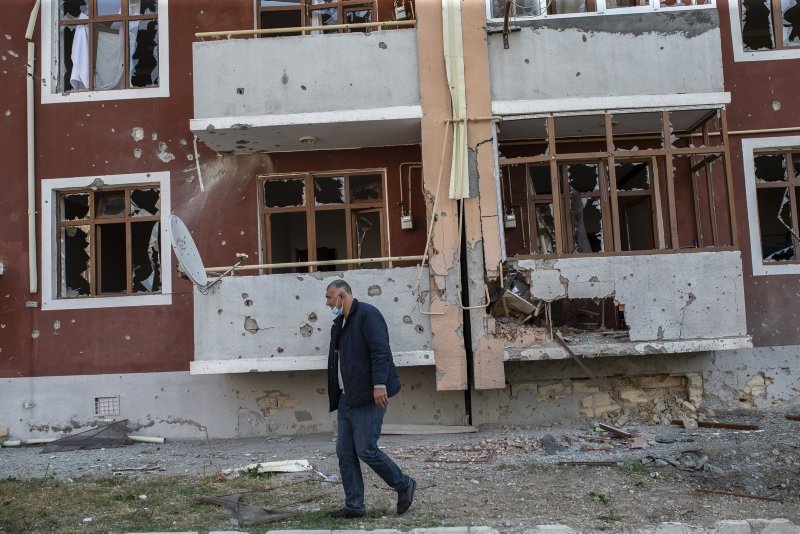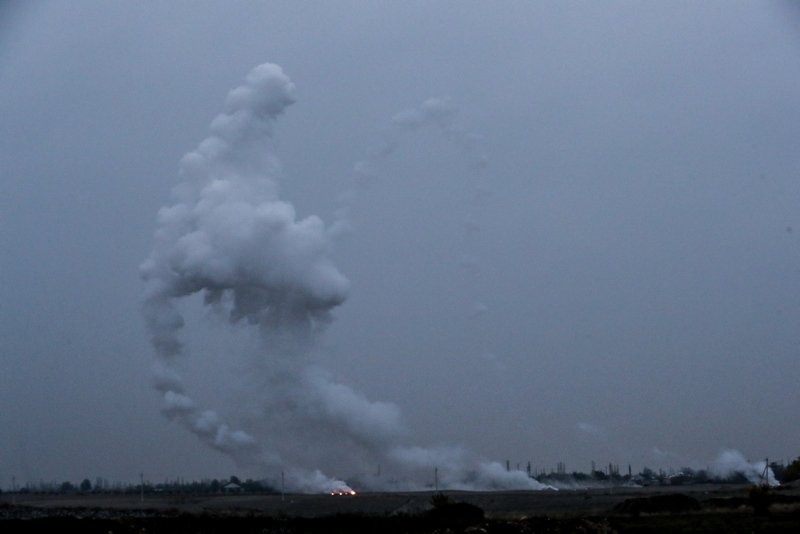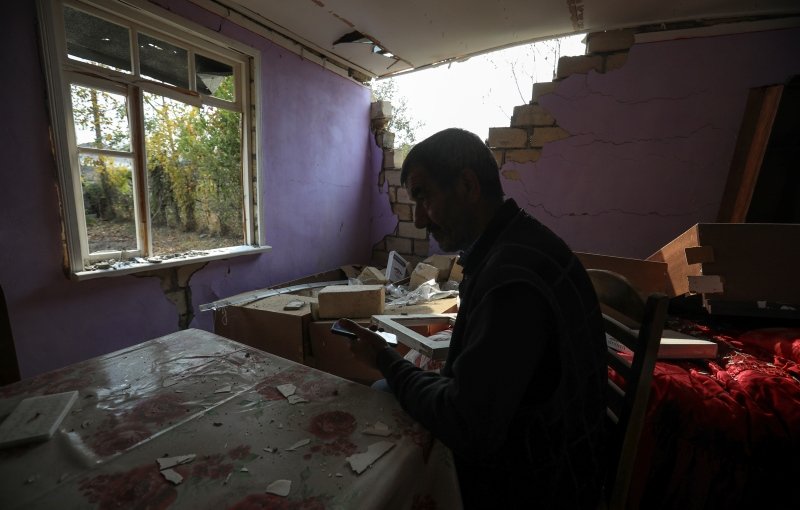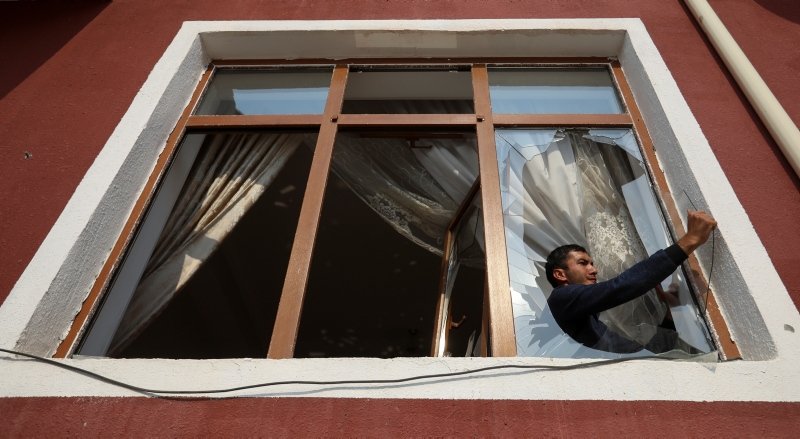Armenian forces continue incessant cross-border attacks on Azerbaijani civilian settlements 40 days after the first clashes broke out.
Despite several cease-fires, the Armenian side on Thursday morning opened fire on the civilian settlements of Goranboy and Tartar regions, the Azerbaijani Defense Ministry said.

Also, four shells landed in the Giyameddinli village of Azerbaijan's Aghjabedi region in the morning hours, said the statement.
Armenian military units also fired at the positions of the Azerbaijani army with mortars and howitzers.
"Starting from the evening hours on November 4 to 04:50 [0050GMT] on November 5, the positions of our military units located in Tovuz, Gadabay and Dashkesan regions of Azerbaijan were fired intermittently by the enemy from the direction of Berd, Chambarak and Vardenis regions of Armenia," the ministry said.
The combat operations continued overnight with varying intensity, mainly in the Aghdere and Khojavend regions, it added.
The Azerbaijani troops are monitoring the situation on the ground, the statement added, noting the Armenian troops were forced to retreat in some places.

The ministry also rejected the claims of the Armenian side about the alleged renewed shelling of Khojavand and Shusha by the Azerbaijani army, adding that it was an "absolute lie".
"We declare once again that the Azerbaijani Army does not shell residential settlements and civilian infrastructure," the ministry said.
Earlier, Hikmet Hajiyev, the assistant to the Azerbaijani president, said on Twitter that the Armenian forces targeted Azerbaijani civilians with white phosphorus missiles.
"Tartar region of #Azerbaijan. Sehlabat village. Destruction of white phosphorus projectile. Armenia continues to use white phosphorus projectiles against civilian objects," he said.

Since clashes began on Sept. 27, at least 92 civilians including 11 children have lost their lives, according to Azerbaijan's Chief Prosecutor's Office. More than 400 people have been wounded; among them dozens are children.
Several thousand houses and residential buildings have been raised to the ground in these attacks.
Relations between the two former Soviet republics have been tense since 1991 when the Armenian military occupied Upper Karabakh, or Nagorno-Karabakh, an internationally recognized territory of Azerbaijan, and surrounding regions.
Four UN Security Council resolutions and two from the UN General Assembly as well as international organizations demand the "immediate, complete and unconditional withdrawal of the occupying forces" from the Azerbaijani territory.
The Parliamentary Assembly of the Council of Europe also refers to the territory as being under the occupation of Armenian forces.

About 20% of Azerbaijan's territory -- including Nagorno-Karabakh and seven adjacent regions -- has been under illegal Armenian occupation for nearly three decades.
The Minsk Group of Organization for Security and Co-operation in Europe -- co-chaired by France, Russia and the United States -- was formed in 1992 to find a peaceful solution to the conflict, but to no avail. A cease-fire, however, was agreed to in 1994.
World powers including France, Russia and the United States have called for a sustainable cease-fire. Turkey, meanwhile, has supported Baku's right to self-defense and demanded the withdrawal of Armenia's occupying forces.